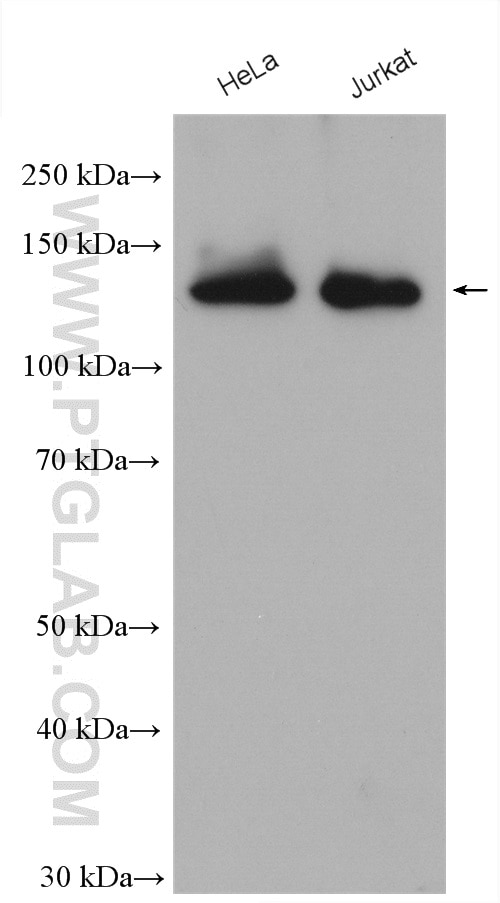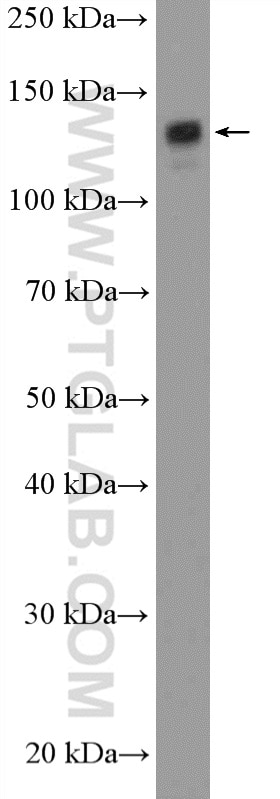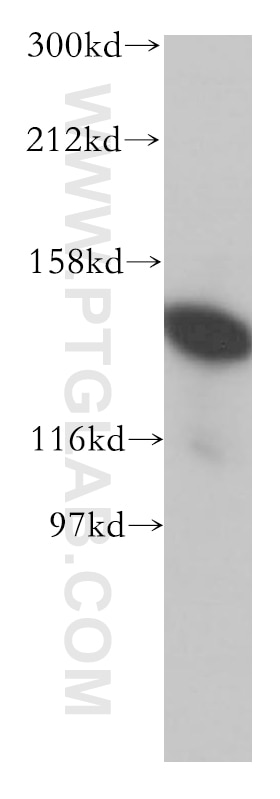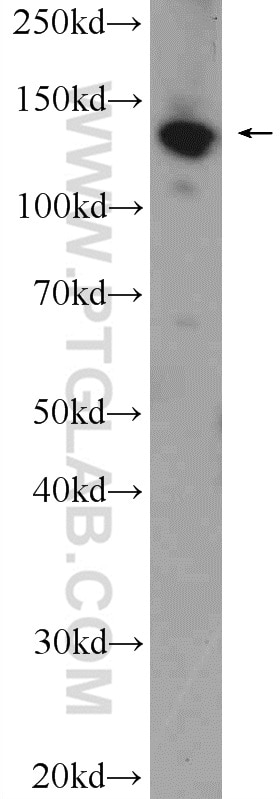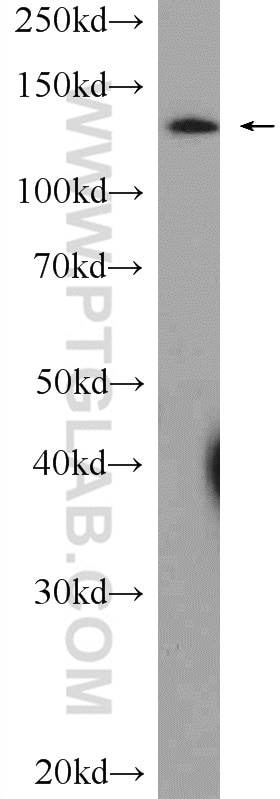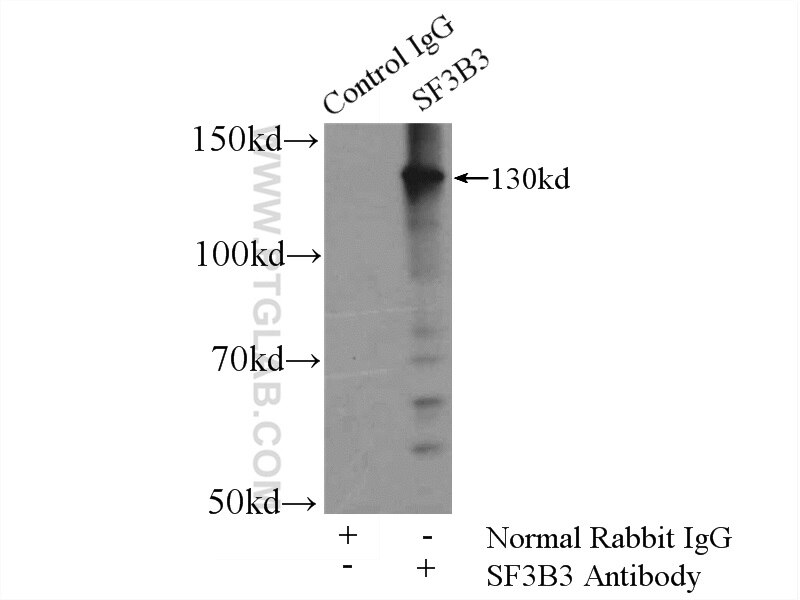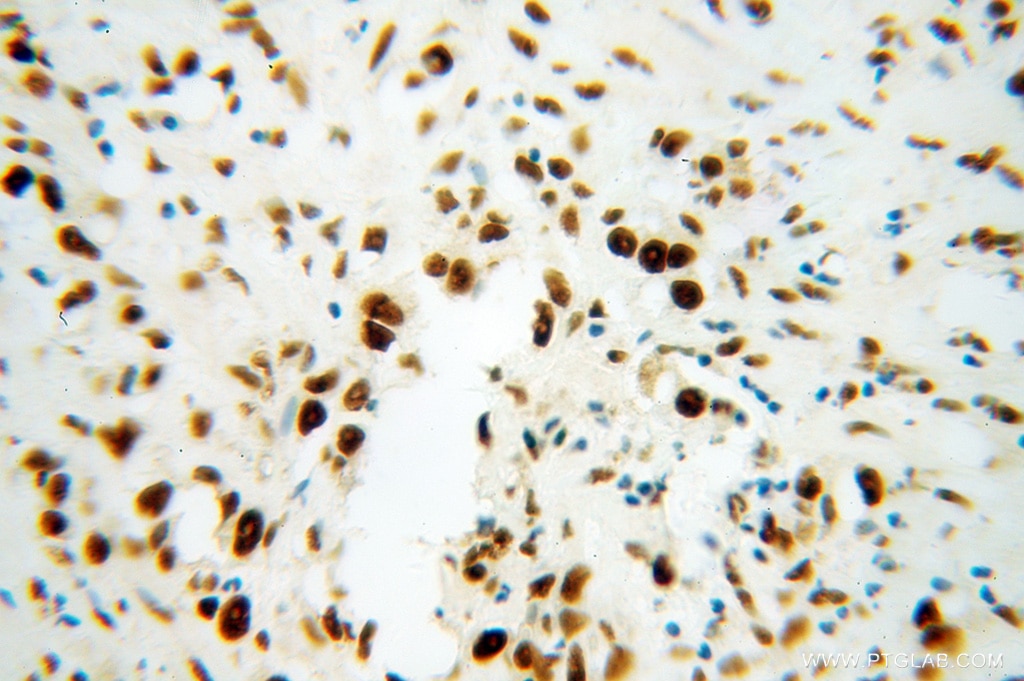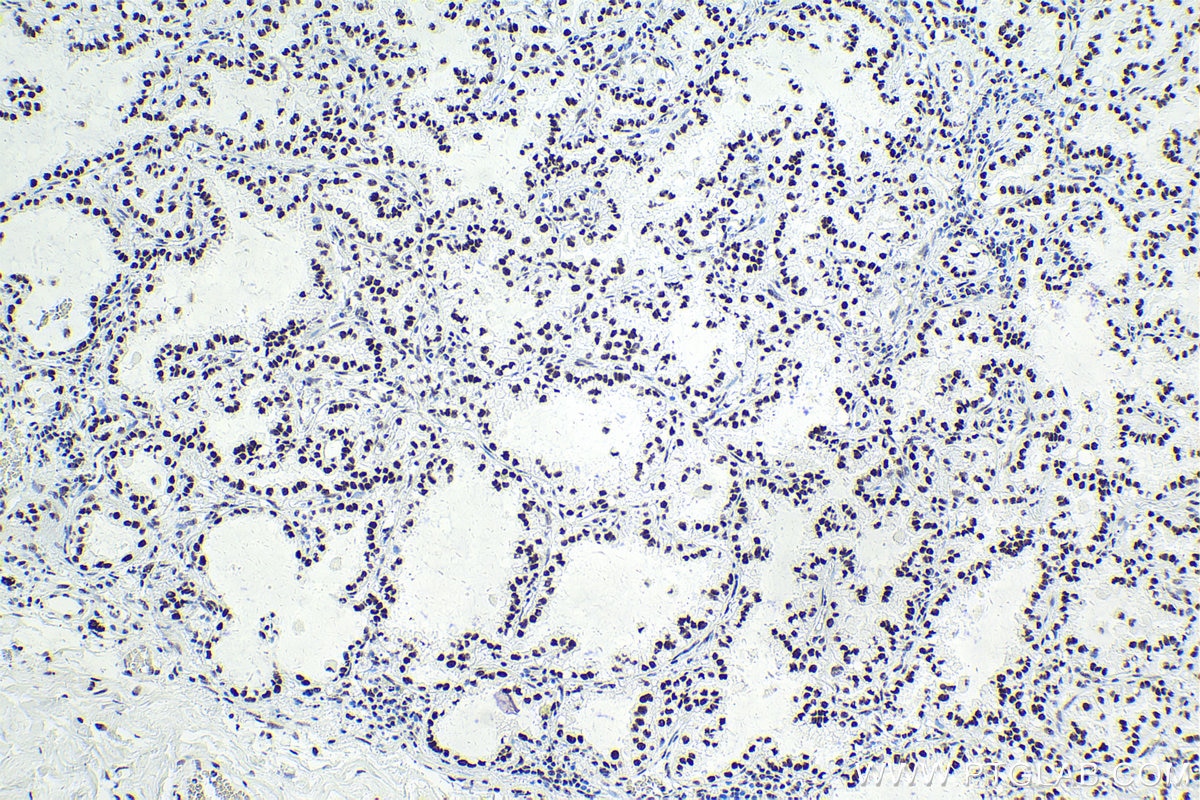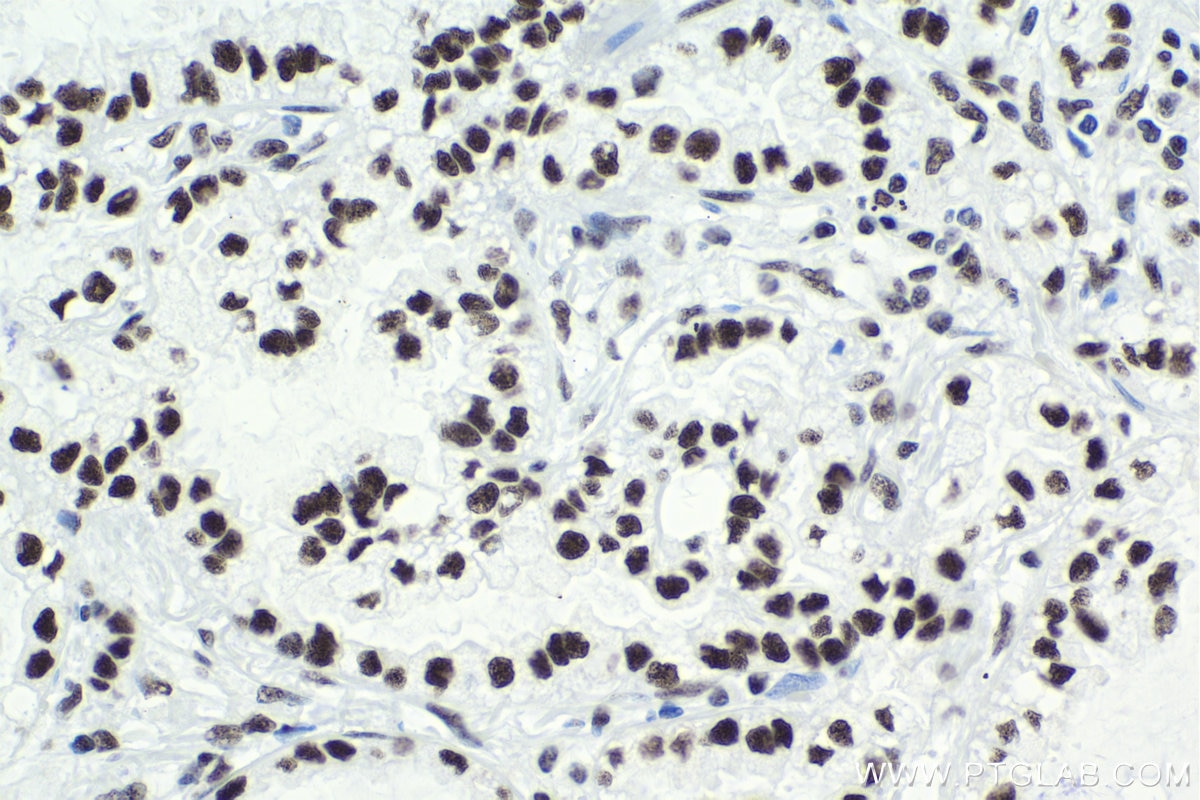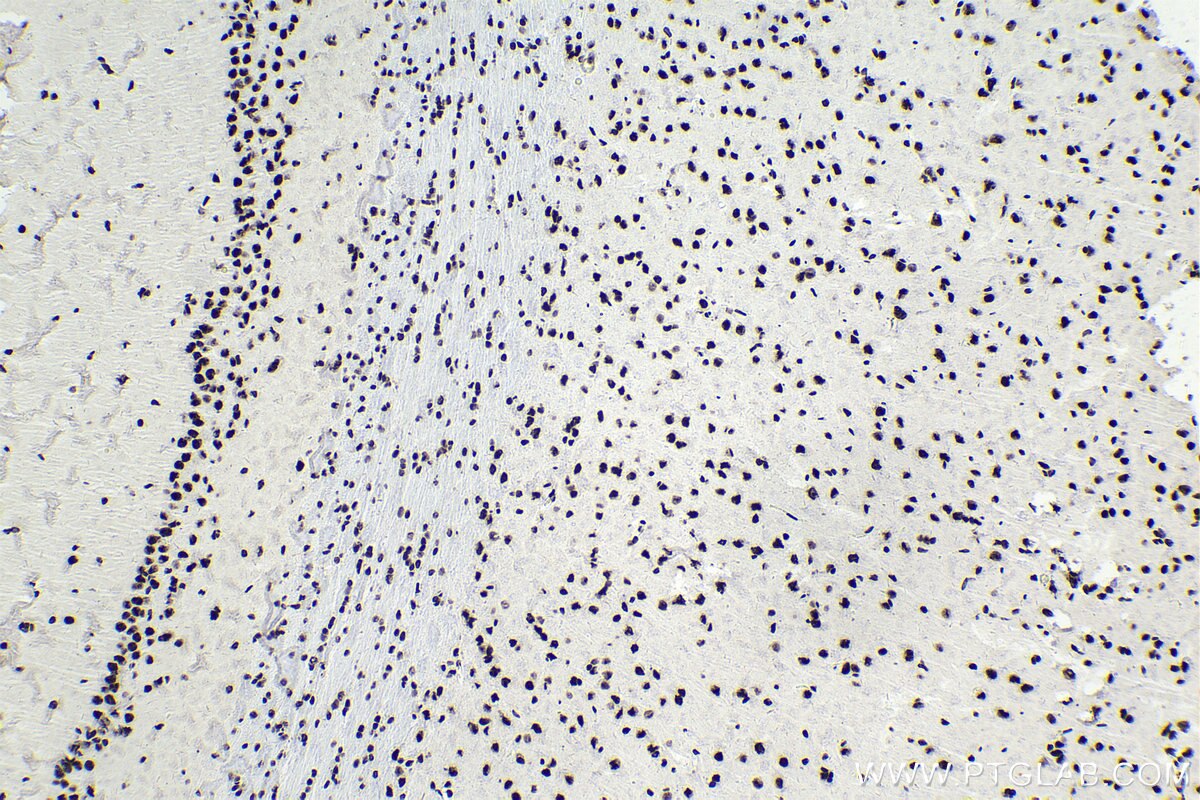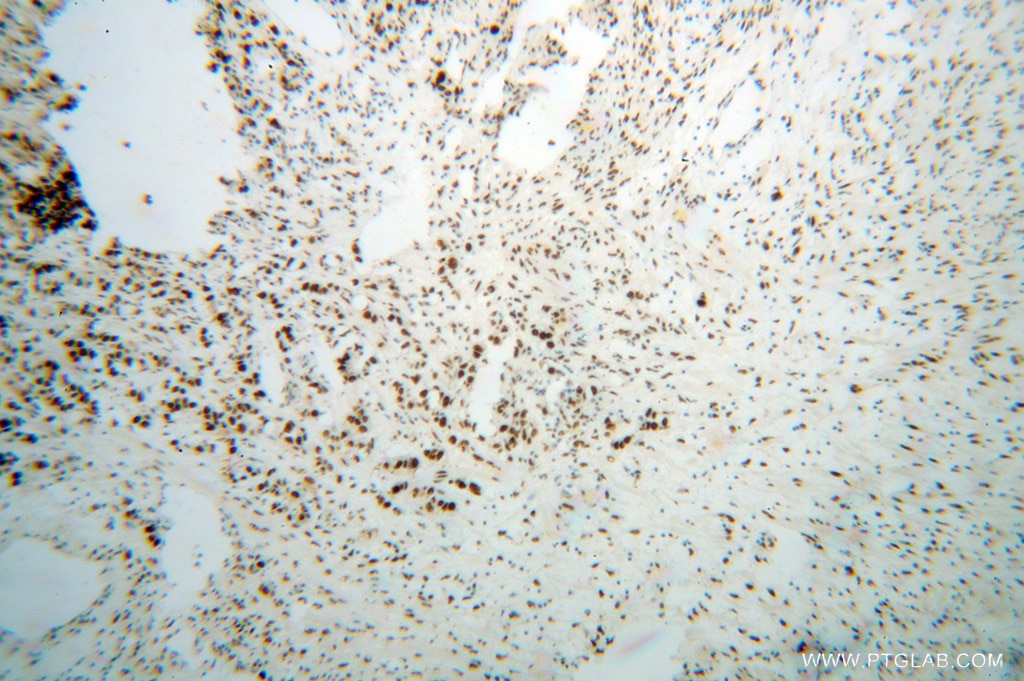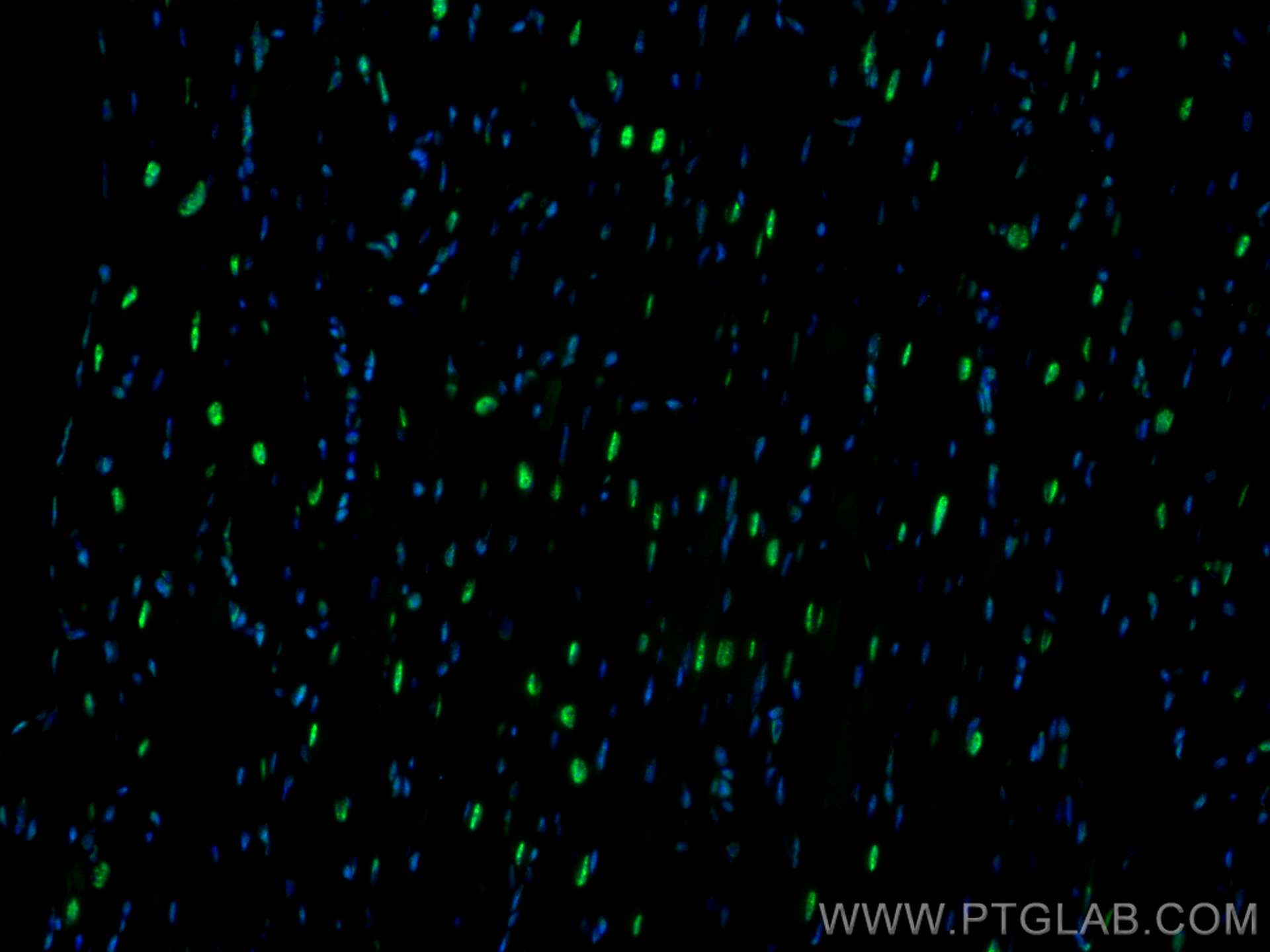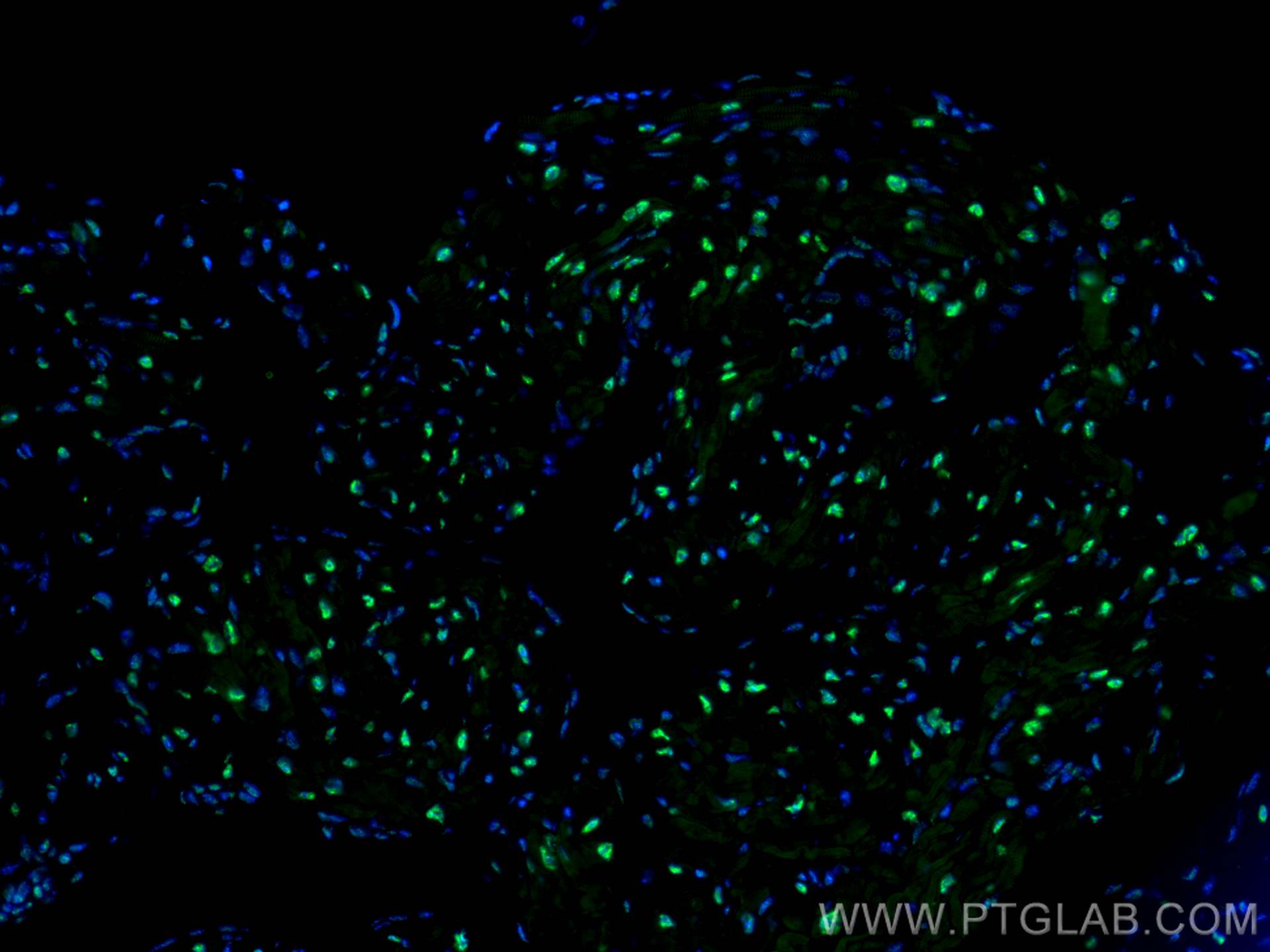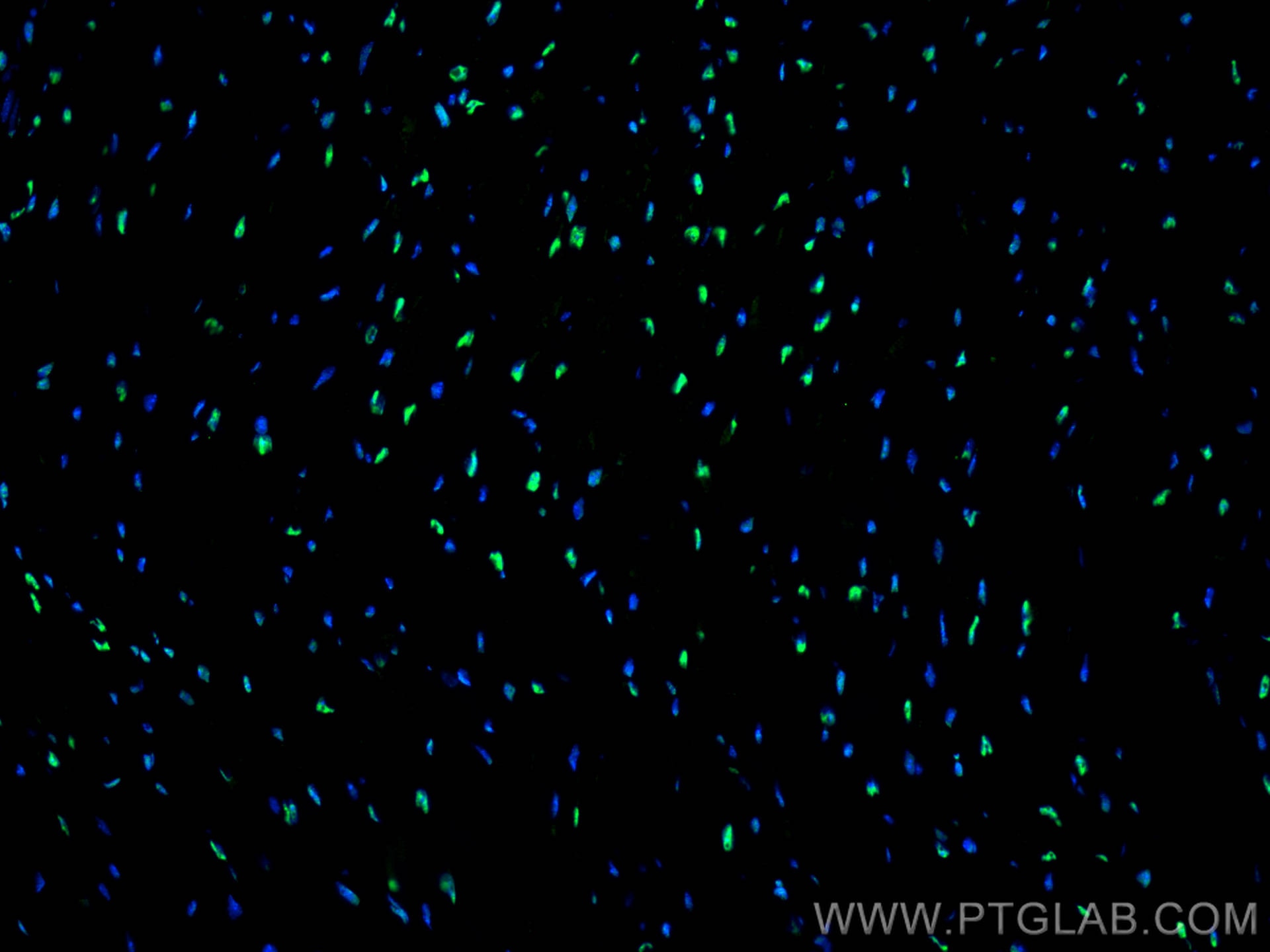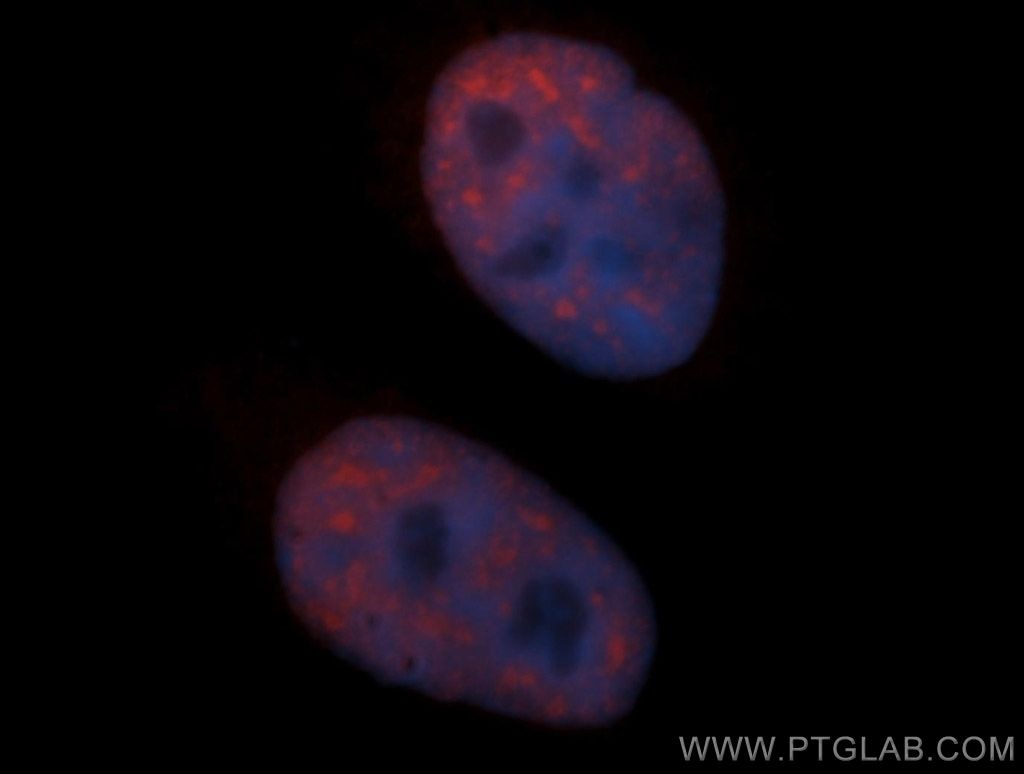Anticorps Polyclonal de lapin anti-SF3B3
SF3B3 Polyclonal Antibody for WB, IHC, IF/ICC, IF-P, IP, ELISA
Hôte / Isotype
Lapin / IgG
Réactivité testée
Humain, rat, souris et plus (1)
Applications
WB, IHC, IF/ICC, IF-P, IP, CoIP, RIP, ELISA
Conjugaison
Non conjugué
N° de cat : 14577-1-AP
Synonymes
Galerie de données de validation
Applications testées
| Résultats positifs en WB | cellules Jurkat, cellules HeLa, tissu cardiaque de rat, tissu cardiaque de souris, tissu cérébral de rat, tissu cérébral humain |
| Résultats positifs en IP | tissu cérébral de rat |
| Résultats positifs en IHC | tissu de cancer du poumon humain, tissu cérébral de rat, tissu de gliome humain il est suggéré de démasquer l'antigène avec un tampon de TE buffer pH 9.0; (*) À défaut, 'le démasquage de l'antigène peut être 'effectué avec un tampon citrate pH 6,0. |
| Résultats positifs en IF-P | tissu cardiaque de souris, |
| Résultats positifs en IF/ICC | cellules HeLa |
Dilution recommandée
| Application | Dilution |
|---|---|
| Western Blot (WB) | WB : 1:2000-1:12000 |
| Immunoprécipitation (IP) | IP : 0.5-4.0 ug for 1.0-3.0 mg of total protein lysate |
| Immunohistochimie (IHC) | IHC : 1:2000-1:8000 |
| Immunofluorescence (IF)-P | IF-P : 1:50-1:500 |
| Immunofluorescence (IF)/ICC | IF/ICC : 1:20-1:200 |
| It is recommended that this reagent should be titrated in each testing system to obtain optimal results. | |
| Sample-dependent, check data in validation data gallery | |
Applications publiées
| WB | See 18 publications below |
| IF | See 2 publications below |
| CoIP | See 1 publications below |
| RIP | See 1 publications below |
Informations sur le produit
14577-1-AP cible SF3B3 dans les applications de WB, IHC, IF/ICC, IF-P, IP, CoIP, RIP, ELISA et montre une réactivité avec des échantillons Humain, rat, souris
| Réactivité | Humain, rat, souris |
| Réactivité citée | rat, Humain, porc, souris |
| Hôte / Isotype | Lapin / IgG |
| Clonalité | Polyclonal |
| Type | Anticorps |
| Immunogène | SF3B3 Protéine recombinante Ag5980 |
| Nom complet | splicing factor 3b, subunit 3, 130kDa |
| Masse moléculaire calculée | 136 kDa |
| Poids moléculaire observé | 130-135 kDa |
| Numéro d’acquisition GenBank | BC003146 |
| Symbole du gène | SF3B3 |
| Identification du gène (NCBI) | 23450 |
| Conjugaison | Non conjugué |
| Forme | Liquide |
| Méthode de purification | Purification par affinité contre l'antigène |
| Tampon de stockage | PBS with 0.02% sodium azide and 50% glycerol |
| Conditions de stockage | Stocker à -20°C. Stable pendant un an après l'expédition. L'aliquotage n'est pas nécessaire pour le stockage à -20oC Les 20ul contiennent 0,1% de BSA. |
Informations générales
Introns are removed from nuclear pre-mRNA in 2-step transesterification reactions. Splicing occured in a large ribonucleoprotein particle, called the spliceosome. Spliceosomal intermediate complexes form on pre-mRNA in the order E, A, B, and C, with the catalytic reactions occurring in complex C. U2 small nuclear ribonucleoproteins are one of the proteins essential for spliceosome assembly and mRNA splicing. Functional U2 snRNP is composed of a 12S unit and 2 splicing factors, SF3A, which is composed of 3 proteins, and SF3B, which conposed of 4 proteins. SF3B3 is one of SF3B, and it's required for 'A' complex assembly formed by the stable binding of U2 snRNP to the brachpoint sequence(BPS) in pre-mRNA.
Protocole
| Product Specific Protocols | |
|---|---|
| WB protocol for SF3B3 antibody 14577-1-AP | Download protocol |
| IHC protocol for SF3B3 antibody 14577-1-AP | Download protocol |
| IF protocol for SF3B3 antibody 14577-1-AP | Download protocol |
| IP protocol for SF3B3 antibody 14577-1-AP | Download protocol |
| Standard Protocols | |
|---|---|
| Click here to view our Standard Protocols |
Publications
| Species | Application | Title |
|---|---|---|
Gastroenterology Enterotoxigenic Bacteroides fragilis promotes intestinal inflammation and malignancy by inhibiting exosomes-packaged miR-149-3p. | ||
Nat Commun Splicing modulators act at the branch point adenosine binding pocket defined by the PHF5A-SF3b complex. | ||
Nucleic Acids Res Corrigendum to article "Quantitative proteomics reveals that long non-coding RNA MALAT1 interacts with DBC1 to regulate p53 acetylation''. | ||
Mol Neurodegener Nuclear speckle specific hnRNP D-like prevents age- and AD-related cognitive decline by modulating RNA splicing. | ||
Nucleic Acids Res Quantitative proteomics reveals that long non-coding RNA MALAT1 interacts with DBC1 to regulate p53 acetylation. |
